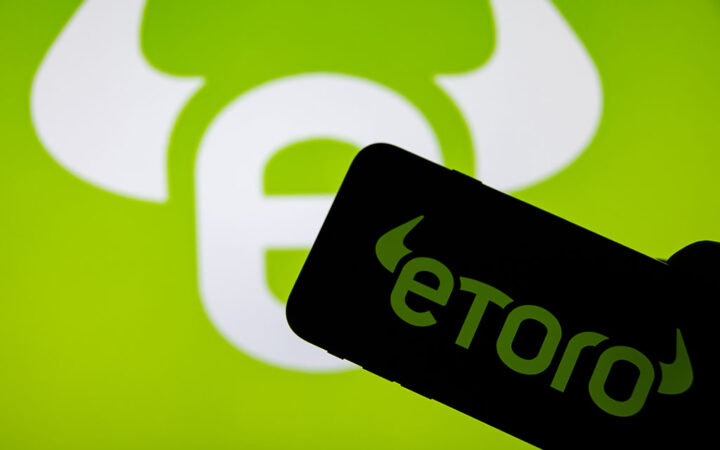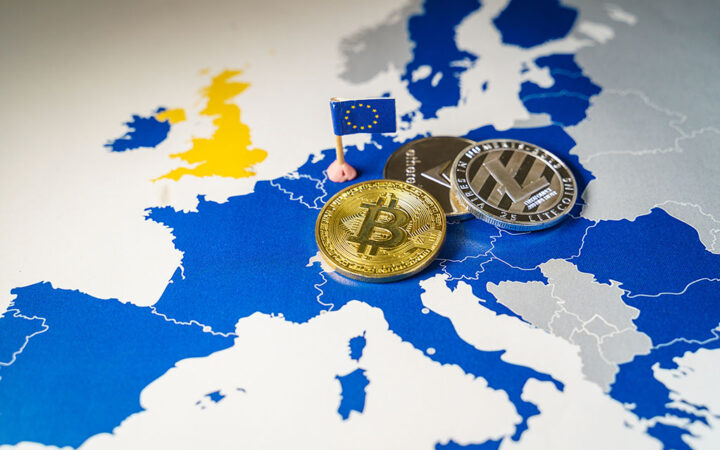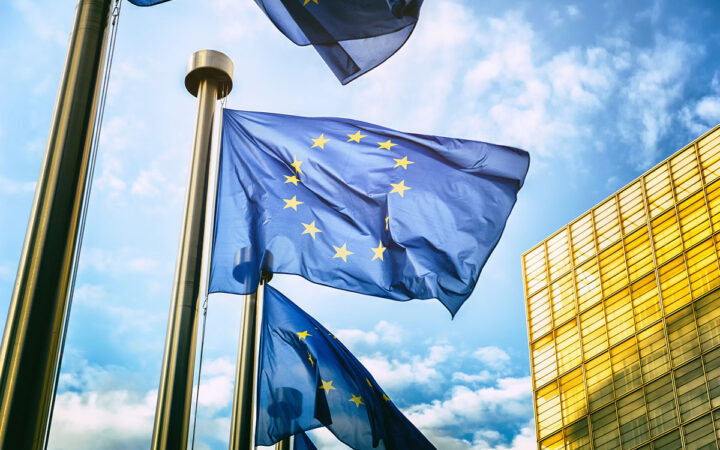
Please check out latest news, expert comments and industry insights from Coinspeaker's contributors.
In this interview, Dr. Philip Blazdell, Fedrok’s CEO, shared his insights into Switzerland’s regulatory environment and the future of blockchain technology.
 Edited by Julia Sakovich
Updated
8 mins read
Edited by Julia Sakovich
Updated
8 mins read

Switzerland has long been a symbol of trust and innovation in the financial world, and its embrace of blockchain technology is no exception. With over 900 blockchain companies, including major players like Ethereum, Cardano, and Tezos, Switzerland has become a global hub for blockchain innovation, thanks to its favorable legal, regulatory, and tax environment.
In 2020, the country took a bold step by enacting the Blockchain Act, a comprehensive legal framework integrating blockchain technology into existing laws. This move not only provided much-needed clarity but also solidified Switzerland’s reputation as a pioneer in fostering blockchain innovation.
Amid this dynamic landscape, Fedrok AG has emerged. A Swiss-registered blockchain company, Fedrok AG is dedicated to environmental sustainability. Through its innovative “Proof of Green” consensus mechanism and its native cryptocurrency, FDR, the company addresses inefficiencies in the carbon credit market while promoting eco-friendly practices.
Leading this innovative enterprise is Dr. Philip Blazdell, Fedrok’s CEO, who brings nearly three decades of global experience in strategic business development and process optimization. With a strong background in advancing technology and a passion for innovation, Dr. Blazdell is driving Fedrok’s mission to redefine how blockchain can address global challenges like sustainability, trust, and transparency.
We had the opportunity to sit down with Dr. Blazdell to explore how Switzerland’s regulatory environment has shaped its mission, the company’s innovative solutions for sustainability, and its vision for the future of blockchain technology.
Blockchain has become a hot topic worldwide, with innovation often outpacing regulation. Switzerland has taken a unique approach by aligning innovation with compliance. What do you think makes Switzerland’s regulatory framework so appealing to blockchain companies globally?
Switzerland’s regulatory framework is attractive because of its clarity, balance, and support for innovation. FINMA, for example, offers clear guidelines by categorizing tokens into payment, utility, and asset types, giving companies a precise framework to work within. Swiss regulators adopt a principles-based rather than prescriptive approach, which encourages innovation without overregulation. Additionally, Swiss authorities maintain an open dialogue with blockchain firms, fostering early discussions around compliance, licensing, and operational challenges. This approach not only creates trust but also promotes sustainable growth for businesses like ours.
Switzerland has long been seen as a beacon of trust in global finance. As the EU’s MiCA regulations roll out, how do you see Switzerland’s standards influencing broader regulatory trends in blockchain?
Switzerland’s principles-based regulatory framework, as seen with the DLT Act and FINMA guidelines, offers a flexibility that contrasts with the EU’s more prescriptive MiCA framework. While MiCA harmonizes crypto regulations across the EU, it may eventually draw from Switzerland’s adaptable model to become more dynamic and innovation-friendly. Furthermore, Switzerland has pioneered compliance interoperability, helping blockchain companies navigate international legal landscapes without compromising innovation. As MiCA seeks to harmonize crypto regulations across the EU, lessons from Switzerland could help ensure smoother cross-border compliance.
While Switzerland offers strong regulatory advantages, navigating its frameworks can be complex. What challenges has Fedrok AG encountered in aligning with these standards, and how have they shaped your approach?
Aligning with Swiss regulations can be a time-consuming and expensive process and involves building robust SOPS, policies, and a 360-degree view of the regulatory landscape. To meet these challenges, Fedrok AG has been encouraged to take a more measured and pragmatic approach to development and to place a greater degree of emphasis on planning, strategy and continuous improvement than we first imagined. These challenges, while demanding, have shaped us into a company built for resilience and longevity.
Your “Proof of Green” consensus mechanism is a standout feature. How does it align with Switzerland’s broader commitment to sustainability and transparency, and what sets it apart from other sustainability-focused initiatives in the blockchain space?
Proof of Green is the core of our company and something we passionately believe in. In addition to the Swiss Climate Strategy 2050, an investment of canton-wide circular economy projects, Switzerland’s financial sector integrates ESG criteria into investment practices. The Swiss Financial Market Supervisory Authority (FINMA) encourages transparency in green finance and climate-related disclosures. Our plan was always to build a company that would adhere to the most stringent ESG criteria and eventually be seen as the gold standard for such reporting. Previously, we’d worked on ESG protocol developments for developing countries and felt that this area was severely underrepresented in the space.
In order to fully empower Fedrok we needed to make sure that implementing sustainability features, such as carbon offset tracking or eco-friendly consensus mechanisms, did not add complexity and limit blockchain scalability. We also identified the potential for Greenwashing in this sphere of activity and ensuring that claimed carbon offsets or eco-friendly practices are legitimate and effective requires robust monitoring systems, which can be difficult to implement unless you have been driven, by FINMA, to build a robust and transparent system which is open to public scrutiny on a global scale.
The carbon credit market is fraught with inefficiencies and lack of standardization. How does Fedrok AG’s blockchain address these challenges, and what role does Swiss regulation play in supporting these efforts?
By leveraging Switzerland’s supportive regulatory framework and ambitious climate goals, Fedrok AG is creating a foundation for excellence in compliance and reporting. Fedrok AG can tokenize carbon credits, enabling fractional ownership and attracting smaller investors or participants who couldn’t previously engage in the market whilst allowing seamless cross-border transactions and expanding market reach and liquidity. Through smart contracts, we automate compliance with predefined carbon credit standards, reducing market discrepancies and fostering trust. In essence, Swiss regulation provides the stability we need to innovate while building a transparent and scalable carbon credit market.
Incentivizing greener blockchain practices is a novel approach. What has been the response from miners and stakeholders within the crypto community to the “Proof of Green” model?
The response so far has been incredibly positive. While we’re still refining our engagement strategy, stakeholders recognize the potential of “Proof of Green” to drive meaningful change. We are still very much finding the true voice of our customers and we remain committed to evolving our model to meet global needs.
Public sentiment around blockchain is often skeptical due to concerns about energy consumption and transparency. Beyond regulation, how does Fedrok AG address these perceptions and build trust among users and institutions?
From day one we knew trust had to be at the heart of Fedrok AG. That’s why we chose Switzerland, a symbol of reliability, for our registration. As a company, we aim to be as open and inclusive as possible and encourage stakeholders at all levels to scrutinize our work and engage with us. Publishing the CEO’s calendar link is one of many ways we foster openness.
Operationally, we are big on KPIs, and management certificates such as ISO 9001, ISO 14001, and ISO 27001. Our active Customer Experience team also works to address misinformation through direct engagement and public outreach. Furthermore, In case of challenges or breaches, Fedrok AG commits to full transparency about what happened, actions taken, and measures implemented to prevent recurrence. By responding transparently to challenges, we aim to set a new standard for accountability in the blockchain industry.
Collaboration with governments and institutions is becoming increasingly important as the blockchain industry matures. What is Fedrok AG’s vision for partnerships with global regulators or eco-focused organizations, and how do you see these shaping the future of sustainability in blockchain?
Fedrok AG is committed to building strong relationships with global regulators and eco-focused organizations. We actively collaborate with bodies like the Swiss Financial Market Supervisory Authority (FINMA), the European Commission, and the SEC. We aim to influence the development of standardized frameworks for blockchain in carbon credit verification, sustainability reporting, and eco-friendly finance to become the defacto-gold standard in this area.
Our modest ambitions in the short term include driving global standardization, democratizing access to carbon markets, and collaborating with like-minded organizations to achieve ethical and equitable outcomes. Hopefully, this will lead to wider adoption of greener consensus mechanisms, easier integration into sustainable energy markets, and greater supply chain transparency. We believe we can significantly contribute to a circular economy and reduce global waste.
Looking ahead, what do you see as the most meaningful opportunities for blockchain technology to address global challenges like climate change and regulatory compliance?
The industry is moving incredibly fast and the landscape is forever changing. However, I feel that blockchain’s greatest opportunities will occur almost below the radar and be small, hyper-local projects that generate outsized impacts. As a company, we have been fascinated with the many cash-for-trash initiatives globally. I believe that by integrating tokenized incentives, real-time tracking, and automated verification, blockchain can significantly improve the impact and scalability of waste management initiatives.
For example, it is estimated that 15-20 million people globally work in the informal waste management sector, including waste picking and recycling. Blockchain offers a way to ensure immediate and transparent payments, fair compensation via smart contracts and verified recycling processes with immutable records. Such simple, yet profoundly effective systems have the real potential to sow real change in communities that are largely unrepresented and yet have a huge impact on the planet’s health.
Disclaimer: Coinspeaker is committed to providing unbiased and transparent reporting. This article aims to deliver accurate and timely information but should not be taken as financial or investment advice. Since market conditions can change rapidly, we encourage you to verify information on your own and consult with a professional before making any decisions based on this content.

Please check out latest news, expert comments and industry insights from Coinspeaker's contributors.




